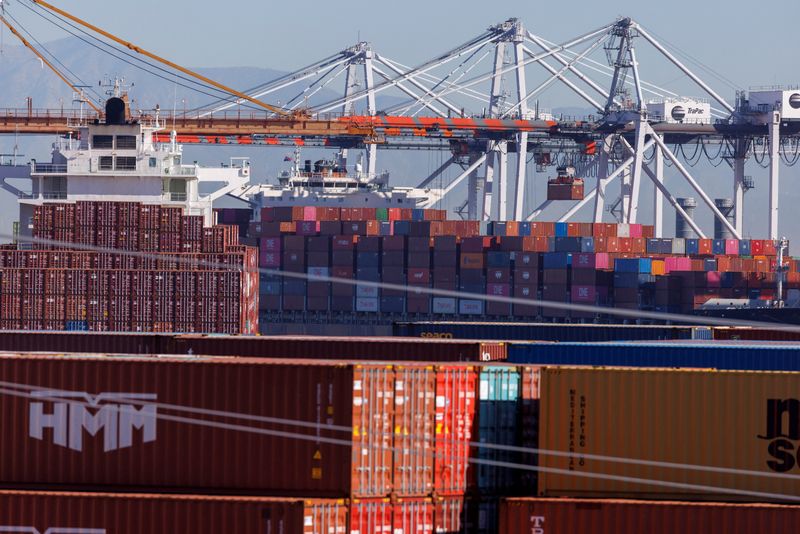By Lisa Baertlein
LOS ANGELES (Reuters) - The busiest U.S. seaport expects August imports to begin easing from record highs as retailers cancel orders in the wake of shoppers' pulling back from freewheeling pandemic spending, the executive director of the Port of Los Angeles said on Wednesday.
The Port of Los Angeles and the adjacent Port of Long Beach handle more imports from China than any other U.S. ocean trade gateways, and their forecasts are considered to be an economic barometer.
"Imports will begin to ease somewhat. I expect to see that reflected in our August cargo numbers," Gene Seroka, the Los Angeles Port executive director, said on a media call.
"China factory orders just reported were slowing and some U.S. retailers continue to say they have elevated inventories," he said.
Walmart (NYSE:WMT), the No. 1 U.S. importer of containerized goods, on Tuesday said it had "canceled billions of dollars in orders to help align inventory levels with expected demand."
Incoming goods at the ports of Los Angeles and Long Beach have been running more than 25% higher than in 2019, before the pandemic began.
Seroka expects the Port of Los Angeles to handle fewer appliances, sporting goods and fixtures for bathrooms and kitchens remodels - as some of those purchases are not likely to be repeated in the near term.
"The heady days of growth in imports are quickly receding," Hackett Associates founder Ben Hackett wrote in an August 2022 report prepared with the National Retail Federation (NRF).

While Hackett and the NRF expect second-half imports at major U.S. container seaports to decline versus 2021, they project that full-year 2022 imports will rise 2.1% to 29.7 million 20-foot equivalent units - which would be a record.
"The takeaway is that harder times are ahead, at least until mid-2023," said Hackett, whose outlook calls for the import decline to deepen in 2023.